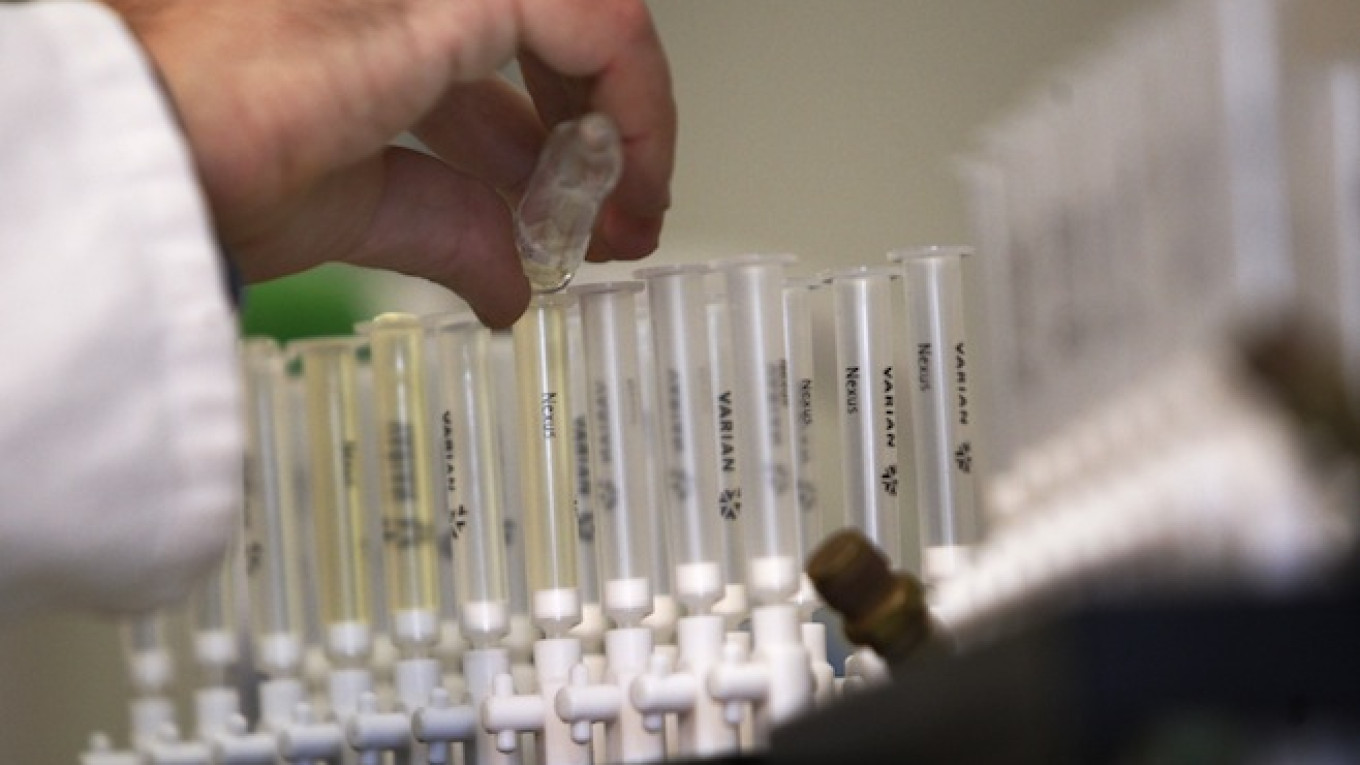 Eduard Bezuglov
Eduard BezuglovIn the wake of the Maria Sharapova scandal, as many as 30 Russian athletes have tested positive for meldonium, the drug recently included on the list of prohibited substances by the World Anti-Doping Agency (WADA). Their ranks include prominent athletes in a range of sports, from four-time world swimming champion Yulia Yefimova and European figure skating championship medalist Yekaterina Bobrova to long-time world speed skating champion Pavel Kulizhnikov, and many others.
This is probably only the beginning. The ax has yet to fall on members of Russia’s team sports, who usually undergo doping tests in the spring.
The Sports Ministry and Federal Biomedical Agency are not to blame in any way for all of this. They repeatedly notified doctors and athletes that meldonium had been added to the list of prohibited substances. The Russian Anti-Doping Agency even conducted a special seminar on the subject and its site has warned the athletic community of the impending ban since last September.
Team doctors have been physically unable to order meldonium for their athletes since Oct. 15, and all of them — including myself — received detailed e-mail communications to that effect.
In fact, 99.9 percent all Russian doctors and athletes knew perfectly well that meldonium would be prohibited and that the punishment for using it would be harsh.
So why is this happening?
There are two reasons.
The first can be termed the “Russian roulette syndrome.” As strange as it might seem, a great many Russian athletes believed that since they’d been using the drug for years without getting caught — never mind that nobody was testing for it, either — they should manage to pass any future tests with equal ease. “And besides,” they argued, “the instructions say that the body quickly excretes any traces of the drug.”
The second reason: plain superstition. Once an athlete performs well after taking a drug, he invariable concludes that it was the drug that brought success — not the coach, not his own talent and hard work and definitely not luck. “It was the meldonium, I know it!” And with that deep conviction, the athlete goes right on using the drug. The irony is that almost all of his competitors are also using it, and each one believes that it will somehow give him that little edge needed to win.
That is why many Russian athletes continued taking meldonium right up until the start of the prohibition on Jan. 1, 2016, and why some continued even beyond that.
Of course, this does not mean that all Russian athletes are using meldonium. Even German journalist Hajo Zeppelt, who produced the now-famous and highly critical film on doping in Russian sports, found that only 17 percent of the samples taken from Russian athletes tested positive for the drug. That means 83 percent of Russia’s top athletes (other athletes are not subjected to doping tests) did not use meldonium.
But even those figures appear inflated. It is known for a fact that only 8.5 percent of all athletes from the former Soviet republics who competed in the first European Games in Baku in June 2015 tested positive for meldonium — of course, six months before it was prohibited.
Still, even 8.5 percent is a very high figure. The Russian athletic community finds itself in a very unpleasant situation. However, the upcoming and inevitable wave of positive test results might even prove helpful.
After all, it might force WADA to research the drug more thoroughly, and it might find that it takes longer than previously thought for traces of meldonium to leave the body. That would let hundreds of innocent athletes off the hook who, in all likelihood, really did stop using the drug by Jan. 1. At least, it would be nice to believe that they did. It is important to realize that, as of this writing, nobody can say with certainty how long it takes for traces of meldonium to leave the body.
Almost everyone in the sporting world understands that the meldonium prohibition has not helped WADA catch the most serious doping violators, and that the punishments it has enforced are too harsh. Banning an athlete from competitions for 2-4 years for using a drug that has not even been proven to enhance performance is like throwing someone in jail for 20 years for stealing a sack of potatoes that might not even be edible.
Of course, widespread punishments for meldonium use would deliver a huge blow to Russian sports. It also tarnishes their image. After all, the average Russian doesn’t know the difference between meldonium and, say, steroids. And if it happens that two members of a single team test positive for the drug, officials might bar the whole team from competition and strip it of its titles.
However, WADA might soften its stance — precedents do exist. For example, at the Junior Football Championships in Mexico, almost all of the players tested positive for Clenbuterol. However, the drug was later found in beef that all of the tournament participants had eaten. Although WADA insisted on punishing the offenders, FIFA managed to convince the doping watchdogs that nobody had ingested the drug intentionally and to drop the charges.
If the Russian athletic community wants WADA to soften its stance, it should forego arguing with the body or looking for conspiracy theories. Instead, it should work with WADA to research each individual case in hopes of finding the reason for the large number of positive results.
And of course, Russia should defend athletes who stopped using meldonium before Jan. 1, taking their cases as far as the Court of Arbitration for Sport in Lausanne, Switzerland if necessary. The problem is: How to know who really stopped? Nobody will admit to doping. And ordinarily, if everyone had stopped using the drug at the same time, concentrations of meldonium detected in the samples would be relatively uniform. However, the concentrations vary widely, and that makes it impossible to reach a definite conclusion.
Eduard Bezuglov is a doctor for the Russian national football team.
A Message from The Moscow Times:
Dear readers,
We are facing unprecedented challenges. Russia's Prosecutor General's Office has designated The Moscow Times as an "undesirable" organization, criminalizing our work and putting our staff at risk of prosecution. This follows our earlier unjust labeling as a "foreign agent."
These actions are direct attempts to silence independent journalism in Russia. The authorities claim our work "discredits the decisions of the Russian leadership." We see things differently: we strive to provide accurate, unbiased reporting on Russia.
We, the journalists of The Moscow Times, refuse to be silenced. But to continue our work, we need your help.
Your support, no matter how small, makes a world of difference. If you can, please support us monthly starting from just $2. It's quick to set up, and every contribution makes a significant impact.
By supporting The Moscow Times, you're defending open, independent journalism in the face of repression. Thank you for standing with us.
Remind me later.


